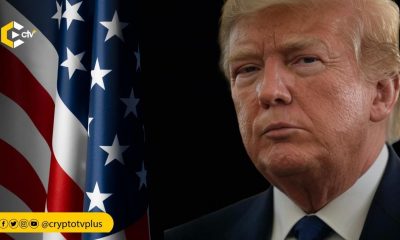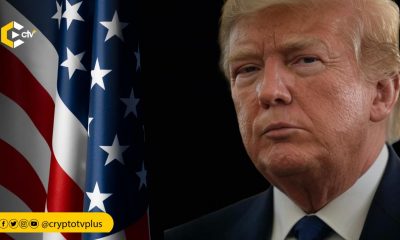News
Why Trump’s Bitcoin Reserve signals a bullish future

Bitwise’s Matt Hougan believes that a U.S. decision to establish a strategic Bitcoin reserve will “dramatically increase the likelihood that other nations will establish strategic Bitcoin reserves.”
Establishing a strategic Bitcoin reserve in the U.S. will likely reduce the odds of the government prohibiting Bitcoin while simultaneously motivating more countries to adopt it, say crypto analysts.
On March 7, President Trump signed an order to initiate the creation of a Strategic Bitcoin Reserve alongside a reserve of digital assets.
The U.S. government plans to fund the reserve with “Bitcoin owned by the federal government that it forfeited as part of criminal or civil asset forfeiture proceedings,” according to White House crypto czar David Sacks. He stated that the U.S. holds around 200,000 BTC from these forfeitures.
The market reacted negatively, and Bitcoin experienced a sharp 6% drop as traders appeared dissatisfied with the news.
Despite the market’s response, many analysts suggest that this announcement signals a bullish indicator.
A major effect of a U.S. strategic Bitcoin reserve is that it “dramatically reduces the likelihood that the U.S. government will someday ‘ban’ Bitcoin,” according to Bitwise CIO Matt Hougan.
In November, the Federal Reserve Bank of Minneapolis stated that Bitcoin has the potential to one day force the federal government to keep its budget in check.
“A legal prohibition against Bitcoin can restore unique implementation of permanent primary deficits, and so can a tax on Bitcoin,” it said at the time.
Hougan emphasized that the U.S. Bitcoin reserve increases the odds that other nations will establish similar reserves while also pressuring them to act swiftly to gain an advantage before the U.S. ramps up its Bitcoin holdings.
With 207,189 BTC valued at roughly $18 billion, the U.S. ranks as the top nation-state in Bitcoin ownership, according to data from BitBO.
Reports indicate that China occupies the second spot with around 194,000 BTC, while the United Kingdom ranks third with 61,000 BTC.
Among all nations, only El Salvador has formally adopted BTC as legal tender.
The country’s Bitcoin Office reports that El Salvador has continued acquiring Bitcoin and currently holds 6,103 BTC, valued at roughly $534 million.
“I expect many of the G20 to take notice and eventually follow America’s leadership,” said Coinbase CEO Brian Armstrong.
Hougan noted that a U.S. Bitcoin strategic reserve weakens institutions like the International Monetary Fund in their attempts to “position Bitcoin as somehow dangerous or inappropriate to hold.”
The IMF has opposed sovereign nations investing in Bitcoin, particularly El Salvador. On March 3, it approved a $1.4 billion financial package for the country while requiring it to limit its Bitcoin accumulation strategy.
The agreement included a condition that prevents El Salvador’s public sector from voluntarily accumulating BTC.
Ryan Rasmussen, Bitwise’s head of research, clarified that the U.S. government never intended to accumulate every Bitcoin in existence.
He listed what the US SBR means: “Other countries will buy BTC, wealth managers have no excuse, financial institutions have no excuse, pensions and endowments have no excuse, fear of the US selling is gone, the US will likely buy more, likelihood of states buying just went up, and the probability the government outlaws Bitcoin is definitively zero.”
The co-founder and CEO at Lightspark, David Marcus, simply said, “This is a balanced outcome and the right decision for now,” adding he was “happy reason has prevailed.”
Nate Geraci, head of ETF Store, pointed out that regulators granted approval for the first U.S. spot Bitcoin ETF only a year ago.
As of now, Bitcoin is recovering and has reached a price of $89,000.
























